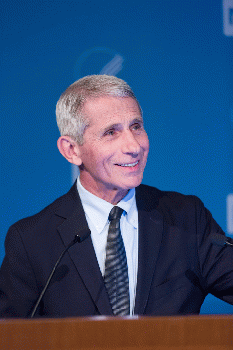One of the most significant events of the last two decades has been largely memory-holed: the October, 2001 anthrax attacks in the U.S. Beginning just one week after 9/11 and extending for another three weeks, a highly weaponized and sophisticated strain of anthrax had been sent around the country through the U.S. Postal Service addressed to some of the country's most prominent political and media figures. As Americans were still reeling from the devastation of 9/11, the anthrax killed five Americans and sickened another 17.
As part of the extensive reporting I did on the subsequent FBI investigation to find the perpetrator(s), I documented how significant these attacks were in the public consciousness. ABC News, led by investigative reporter Brian Ross, spent a full week claiming that unnamed government sources told them that government tests demonstrated a high likelihood that the anthrax came from Saddam Hussein's biological weapons program. The Washington Post, in November, 2001, also raised "the possibility that [this weaponized strain of anthrax] may have slipped through an informal network of scientists to Iraq." Sen. John McCain (R-AZ) appeared on The David Letterman Show on October 18, 2001, and said: "There is some indication, and I don't have the conclusions, but some of this anthrax may -- and I emphasize may -- have come from Iraq." Three days later, McCain appeared on Meet the Press with Sen. Joe Lieberman (D-CT) and said of the anthrax perpetrators: "perhaps this is an international organization and not one within the United States of America," while Lieberman said the anthrax was so finely weaponized that "there's either a significant amount of money behind this, or this is state-sponsored, or this is stuff that was stolen from the former Soviet program." (Lieberman added: "Dr. Fauci can tell you more detail on that").
In many ways, the prospect of a lethal, engineered biological agent randomly showing up in one's mailbox or contaminating local communities was more terrifying than the extraordinary 9/11 attack itself. All sorts of oddities shrouded the anthrax mailings, including this bizarre admission in 2008 by long-time Washington Post columnist Richard Cohen: "I had been told soon after Sept. 11 to secure Cipro, the antidote to anthrax. The tip had come in a roundabout way from a high government official. I was carrying Cipro way before most people had ever heard of it." At the very least, those anthrax attacks played a vital role in heightening fear levels and a foundational sense of uncertainty that shaped U.S. discourse and politics for years to come. It meant that not just Americans living near key power centers such as Manhattan and Washington were endangered, but all Americans everywhere were: even from their own mailboxes.
The FBI first falsely cast suspicion on a former government scientist, Dr. Steven Hatfill, who had conducted research on mailing deadly anthrax strains. Following the FBI's accusations, media outlets began dutifully implying that Hatfill was the culprit. A January, 2002, New York Times column by Nicholas Kristof began by declaring: "I think I know who sent out the anthrax last fall," then, without naming him, proceeded to perfectly describe Hatfill in a way that made him easily identifiable to everyone in that research community. Hatfill sued the U.S. Government, which eventually ended up paying him close to $6 million in damages before officially and explicitly exonerating him and apologizing. His lawsuit against the NYT and Kristof was dismissed since he was never named by the paper, but the columnist also apologized to him six years later.
A full seven years after the attack, the FBI once again claimed that it had found the perpetrator: this time, it was the microbiologist Bruce Ivins, a long-time "biodefense" researcher at the U.S. Army's infectious disease research lab in Fort Detrick, Maryland. Yet before he could be indicted, Ivins died, apparently by suicide, to avoid prosecution. As a result, the FBI was never required to prove its case in court. The agency insisted, however, that there was no doubt that Ivins was the anthrax killer, citing genetic analysis of the anthrax strain that they said conclusively matched the anthrax found in Ivins' U.S. Army lab, along with circumstantial evidence pointing to him.






